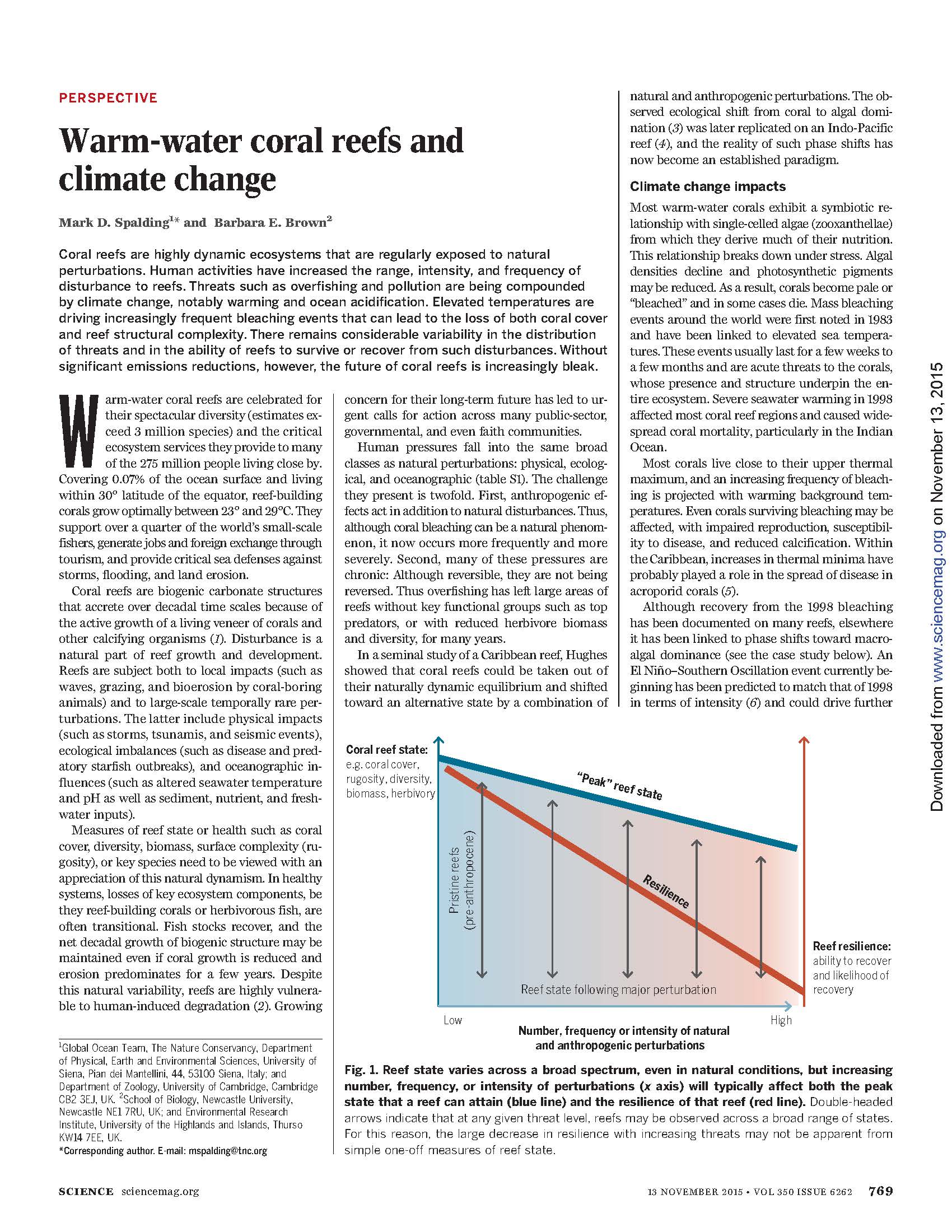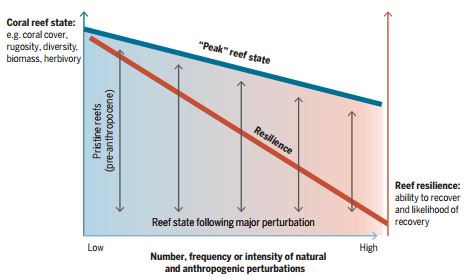Coral bleaching, as a stress response to warming water, can be fatal to corals, and is predicted to increase in frequency and intensity with warming seas. Photo credit: Mark Spalding
Coral reefs are highly dynamic ecosystems. They all have a degree of resiliency, which enables them to bounce back after being hit by storms, starfish plagues or disease. They go through phases of loss and growth. This is natural.
In an article published in one of the world’s leading academic journals, Science, authors Mark Spalding, Senior Marine Scientist for The Nature Conservancy and Barbara Brown, Newcastle University, look at the broad issues surrounding the current situation of coral reefs and together highlight points of hope.

This paper describes how many corals are showing some degree of adaptive capacity to both warming and to acidification, more than some scientists were expecting. Spalding notes that such adaptive capacity, alongside the natural resilience of reefs can enable them to recover even from quite severe perturbations. For example, most reefs in the British Indian Ocean Territory and the Seychelles, which lost virtually all their coral in 1998 due to warm-water induced coral “bleaching”, showed good recovery within a decade.

Figure 1.
Reef State varies across a broad spectrum, even in natural conditions, but increasing number, frequency, or intensity of perturbations (x axis) will typically affect both the peak state that a reef can attain (blue line) and the resilience of that reef (red line). Double-headed arrows indicate that any given threat level, reefs may be observed across a broad range of states. For this reason, the large decrease in resilience with increasing threats may not be apparent from simple one-off measures of reef state.
From: Warm-water coral reefs and climate change. Mark D. Spalding and Barbara E. Brown Science 350, 769 (2015); DOI: 10.1126/science.aad0349
Covering 0.07 percent of the ocean surface, coral reefs are critical to the 275 million people living close by. They support over a quarter of the world’s small scale fisheries, generate jobs and foreign exchange through tourism and provide critical sea defenses against storms, flooding and land erosion.